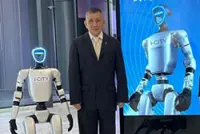There’s no agreed-upon definition of what open source artificial intelligence actually means. And some are accusing AI companies of ‘openwashing’ – using the ‘open source’ term disingenuously to make themselves look good. — The New York Times
Openwashing /ō-pən-wä-shĭng/
An accusation against some AI companies that they are using the “open source” label too loosely.





